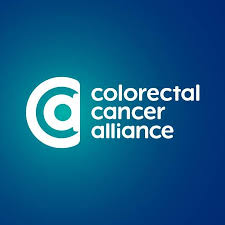
Colonoscopies Help Detect Deadly Colon Cancer
Of all the cancer screenings people have routine access to, the colonoscopy seems to be the one most maligned. And while it’s certainly inconvenient and is a long process, it’s also one of the best tools for early detection and even prevention of colorectal cancers.
For the past 21 years, March has been designated as Colorectal Cancer Awareness Month to raise awareness about the disease and to give survivors and those whose lives have been touched by colorectal cancer a voice.
Screening for colorectal cancer is more complicated than a blood draw, but the test can actually detect abnormal cells that can eventually become cancer. Those abnormal cells and polyps can be removed during the procedure, thereby often preventing the disease from becoming malignant and spreading.
Despite a colonoscopy’s inconvenience, the payback is enormous. According to the American Cancer Society, patients whose cancer is detected early, or as a pre-cancer, generally have more treatment options available to them. Because colorectal cancer is the second leading deadly cancer of men and women, colonoscopies save lives.
This month, be sure to remind your patients about the importance of this screening test. Each patient is different, but these guidelines supplied by the Colorectal Cancer Alliance can help people understand when they should start testing.
- Are you experiencing symptoms?
- Talk to your doctor immediately
- Do you have a family history of colorectal cancer or polyps?
- Get screened at age 40 or 10 years before the age of the youngest case in your immediate family (mother, father, sister, brother)
- Are you African American?
- Get screened beginning at age 45
- Do you have a genetic link to colorectal cancer such as Lynch Syndrome, FAP, etc.?
- Family members who tested positive for a relevant mutation(s) should start colonoscopy screening during their early 20s, or 2 to 5 years younger than the youngest person in the family with a diagnosis, and repeat it every 1-2 years.
Family members who have not been tested yet should be screened during their early 20s, or 2 to 5 years younger than the youngest person in the family with a diagnosis.
- Family members who tested positive for a relevant mutation(s) should start colonoscopy screening during their early 20s, or 2 to 5 years younger than the youngest person in the family with a diagnosis, and repeat it every 1-2 years.
- Do you have a personal history of cancer?
- Talk to your doctor and get screened before age 45
- Do you have ulcerative colitis, inflammatory bowel disease, or Crohn’s disease?
- Talk to your doctor about getting screened before age 45
Educating patients about this cancer can motivate them to get screened for the first time or to keep up with a screening plan already in place. The organization Fight Colorectal Cancer has some excellent tips that can help with the colonoscopy prep. Some people are surprised to find out they can make the preparation of emptying their bowels easier if they start modifying their diet a week before the colonoscopy. Avoid lots of fiber-rich foods for that week—like raw fruits and vegetables, high-fiber cereal or whole grain breads—means there’s less to clean out when it’s time to completely empty the bowels for the colonoscopy prep. And anything that makes the test easier makes people less likely to avoid doing it.
Remind your patients, friends, and family members about the importance of getting colonoscopies when they are recommended. That one test could save their lives.



